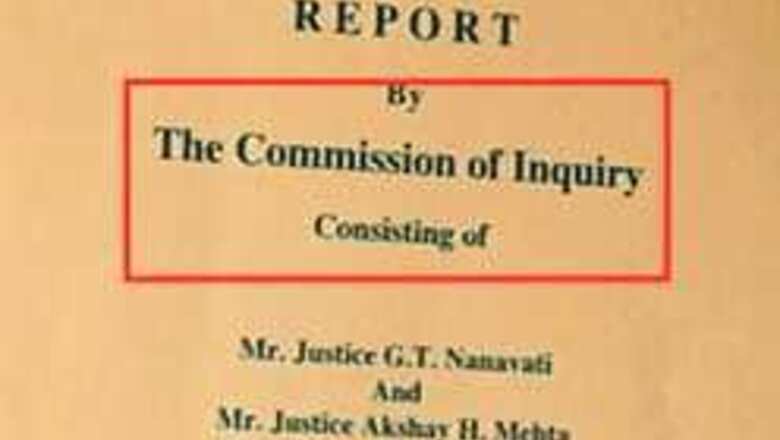
views
New Delhi: The tabling of part one of the inquiry report headed by Justice G T Nanavati on Thursday created a furore with its conclusion that the Godhra train burning of 2002 - which triggered the cataclysmic Gujarat riots - was premeditated and not an accident. Now, all eyes are on the second part of the report that deals with the sectarian violence that followed.
While the first part focussed on the burning of the Sabarmati Express in Godhra in which 59 people were killed, the second part, which is expected to be submitted by December 31, will deal with the facts and circumstances leading to the riots that left over 1,000 people dead.
Five years ago, Nanavati had in an interview pointed out that evidence recorded so far by the panel did "not indicate any serious lapse on part of the Gujarat police or administration in handling the communal clashes".
His comments came after the two-man commission investigating the riots had recorded testimonies in Ahmedabad and Vadodara.
The former judge, who was appointed by the then National Democratic Alliance government to probe the 1984 anti-Sikh riots, will be under scrutiny once again when the second and crucial part of the report is released.
After the death of Justice K G Shah, who was assisting Nanavati, former Gujarat High Court judge Akshay Mehta was appointed in April as a member of the Commission.
His inclusion stirred up a controversy for Mehta's name had figured in the tapes exposed out by Tehelka magazine where one of the prime accused in the Naroda Patiya massacre in Ahmedabad in which 89 people were killed, Babu Bajrangi, was heard saying that he had been granted bail by Justice Mehta who had not even looked at the file.
The Jan Sangharsh Manch, a civil rights organisation and one of the five parties appearing regularly before the Commission, boycotted it after Justice Mehta's appointment.
In his previous report on the 1984 anti-Sikh riots, Nanavati observed that the community was specially targeted for attack and that the authorities connived in the incidents of murder, rape and loot.
The commission incriminated Congress politicians Sajjan Kumar and Jagdish Tytler and also stated that evidence indicated that it was a lapse on part of the civil administration not to call the Indian Army in a timely fashion, resulting in large-scale rioting and loss of lives.
Rights activists were hoping that the Godhra report would be similar in tenor.



















Comments
0 comment